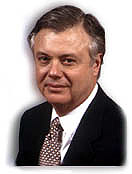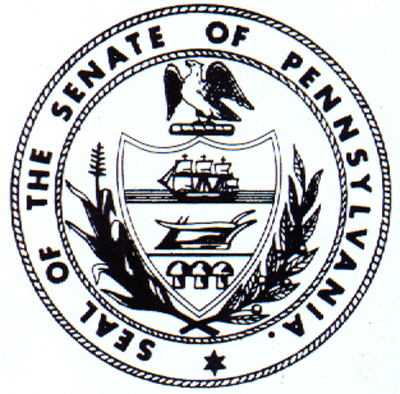|
|
||||||
FUMO SEEKS END TO US AIRWAYS EXCLUSIVE GATE CONTRACTS HARRISBURG, May 27, 2003 – In an attempt to remove barriers to competition among airlines in Pennsylvania, State Senator Vince Fumo (D-Philadelphia) plans to introduce legislation that would prohibit any one carrier from obtaining exclusive rights to an airport gate in a future contract. Under the current system, US Airways, which operates hubs at airports in Pittsburgh and Philadelphia, controls access to a large majority of the arrival and departure gates at those facilities. Even when one of the designated gates is idle, the airline can prevent other carriers from using it. Without a sufficient number of open gates, competitors have only a limited opportunity to provide service in Pittsburgh and Philadelphia, resulting in higher prices and reduced service for travelers. "Pennsylvania citizens and business are at a financial disadvantage when it comes to air travel because of the anti-competitive effects of gate exclusivity agreements," said Fumo, who is chairman of the Democratic Appropriations Committee. Increasing the availability of gates would not only give other airlines more slots for landings and departures, but would also increase the predictability of their scheduling and thus allow them to operate more efficiently and cheaply. Because there is no law prohibiting airlines from securing exclusive control of gates, large airlines often dominate hubs by purchasing the rights to available gates, preventing smaller airlines from entering the market. Some airports already limit the dominant airline’s right to gates, sometimes by making gates available when they are not actually in use by the prime carrier. The non-competitive routing and pricing caused by the exclusive gate usage agreements has been especially costly for consumers traveling within the state. Currently, a customer can obtain a round trip ticket between Philadelphia and Paris, France for about $504, while a round trip flight between Philadelphia and Pittsburgh costs $588. The state cannot legally regulate airline pricing, but it can influence competition by passing legislation concerning how the airports allocate gates. The current exclusivity deals were negotiated into the existing contracts that US Airways has with the airports. Fumo s legislation would not be retroactive, nor would it negate existing contracts, but it would apply to future agreements, including any renegotiation of those currently in place. US Airways voluntarily entered into terms for operation at Greater Pittsburgh International Airport and Philadelphia International Airport, but has recently been discussing terminating those agreements and renegotiating the contracts. In Pittsburgh, where US Airways is a major employer, the possibility of the airline cutting back operations has put the health of Allegheny County’s economy in jeopardy. There is concern that Philadelphia could be similarly impacted in the near future. "If a law promoting competition were in place, and more airlines were serving both of our major airports, we could withstand any of US Airways’ threats," Fumo said. The bill would also impose anti-trust law on airlines in the state. Pennsylvania is the only state without its own antitrust law. Fumo intends to introduce his legislation when the General Assembly returns to session next week. # |


